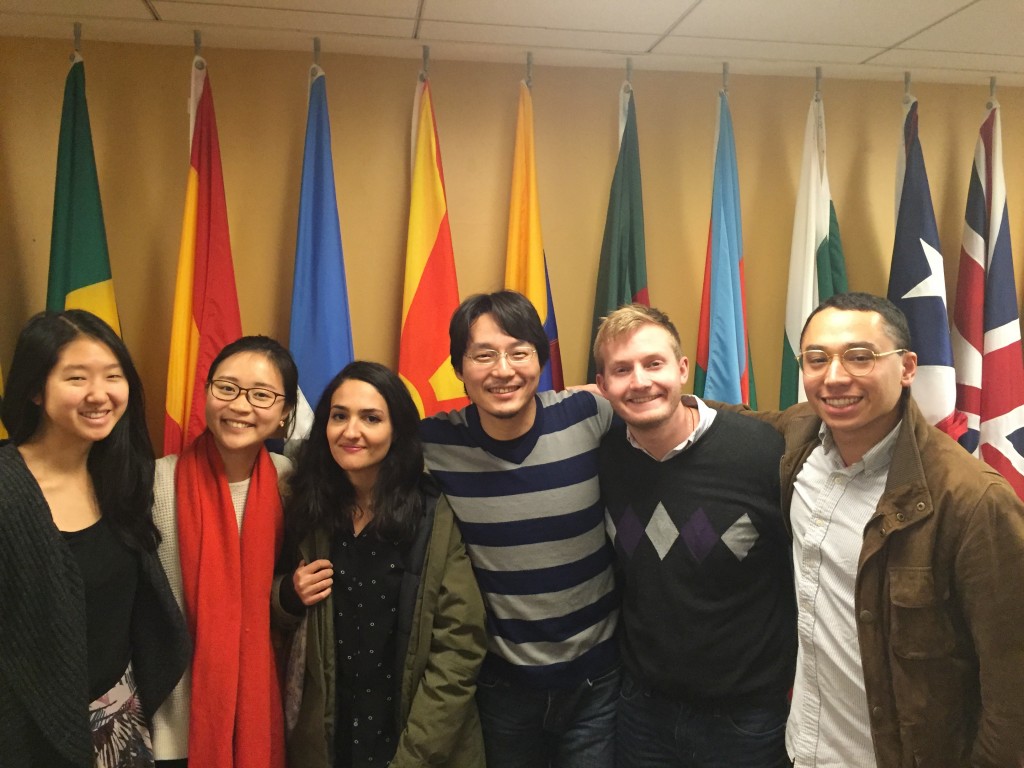Tatsuo’s review of Law and Development
The final update on the fall 2015 semester comes from Tatsuo, who, like Ali and Aditi, took a heavy course load last semester. In fact, I would describe it as an extremely challenging semester for anyone, and particularly for a non-native English speaker just starting his Fletcher studies.
In my first semester at Fletcher, I took four courses: Law and Development; Development Economics: Policy Analysis; Foundations in Financial Accounting and Corporate Finance; and Crisis Management and Complex Emergencies. Every course was interesting, but especially Law and Development, which was one of the reasons that I chose the School. Thus, I want to introduce the course in this post.

Law and Development dealt with development theory and implementation of development policies from the legal perspective. It was an interdisciplinary fusion of international development and legal studies. The combination of two fields, law and international relations, is characteristic of one of the unique qualities of The Fletcher School of “Law and Diplomacy.” In the course, some students did not have legal expertise or practical experience; therefore, the legal materials that we reviewed in the class were not too difficult or specialized. But I hardly felt bored in the class, although I have five years’ experience as a legal officer, managing legislation and implementing laws and orders.
I found the class engaging for a few reasons. First, I was a beginner in international development studies. Thinking about how we could manage issues of international development through legal schemes and techniques was very exciting and helpful for my future career when I will be involved in regional development as a public legal officer.
Second, and more importantly, the course gave us opportunities to think about fundamental questions of law. Developing countries and regions tend not to have adequate legal schemes, bureaucracies, or precedents. Thus, they cannot rely on routine procedures or ways of thinking, and they face fundamental questions that we, developed countries’ officers, likely ignore. What is law? What is a court? What is justice? What is development? Some people think that these questions are not practical, but I certainly do not agree with them. In interdisciplinary or emergency cases, including one I have experienced personally, we have to face such questions. Just after the Great Japan Earthquake in 2011, we wanted to skip or abolish many legal procedures for rapid rescue and recovery. However, even in this emergency situation, in order to evade these established legal schemes, we needed to identify truly necessary legal procedures. I remember that we discussed “What is the government?” and “To what extent could we pursue coercive actions without any democratic or legal procedures?” in those chaotic days.
The professor of the Law and Development course is Jeswald Salacuse. He has a great reputation both in practical fields (the former president of international arbitration tribunals of the International Centre for Settlement of Investment Disputes) and academia (he is also a former dean of The Fletcher School and the founding President of the Association of Professional Schools of International Affairs). In previous work as a legal assistant, he actually pursued law and development issues in developing countries. As a result, his lectures incorporated not only theoretical and text-based knowledge but also vivid recollections of experiences in the field. Although he has had such a prestigious career, he was very friendly and approachable for his students. His class was one of the largest lecture classes at Fletcher, but even with about 30 to 40 students in the class, I did not feel any difficulty asking questions. Professor Salacuse also seemed to like interactive lectures. Additionally even outside the class, the professor kindly helped me with class assignments and papers.
The course dealt with vast areas of law and development. Reading assignments were huge, especially for non-native English speakers like me, so I organized a reading group with other five students. We read and summarized each assigned reading and discussed them each weekend. That was very helpful for understanding background material for the course, and the discussions with students who have diverse backgrounds were also really interesting.
One thing about the course that I regret was my decision to write a paper. We were offered the choice of taking a final exam or writing a research paper. I chose to write the paper. During the first half of the semester, I was struggling to manage the course’s assignments, and I wasn’t able to start writing until after mid-term exams. That meant that writing my draft of the paper overlapped with presentations for final presentations, exams, and papers for my other courses. If my schedule management had worked better, I could have done more to improve the final version. Although I did not receive the grade I had hoped for on the report, it was the only thing I regret about the course.